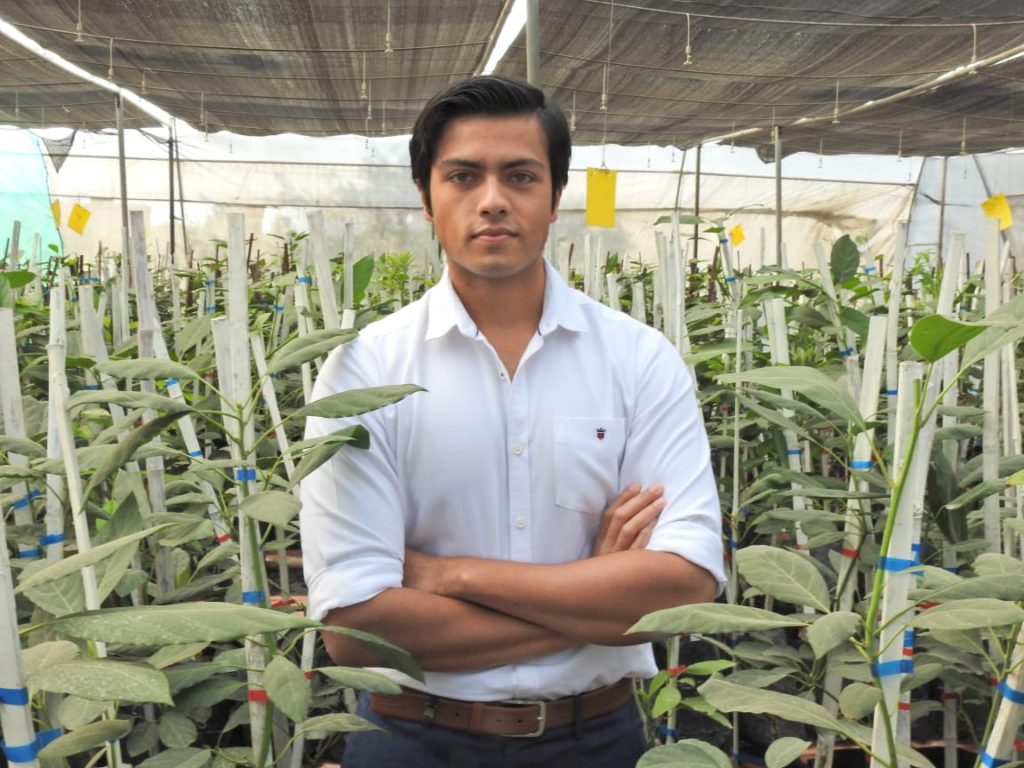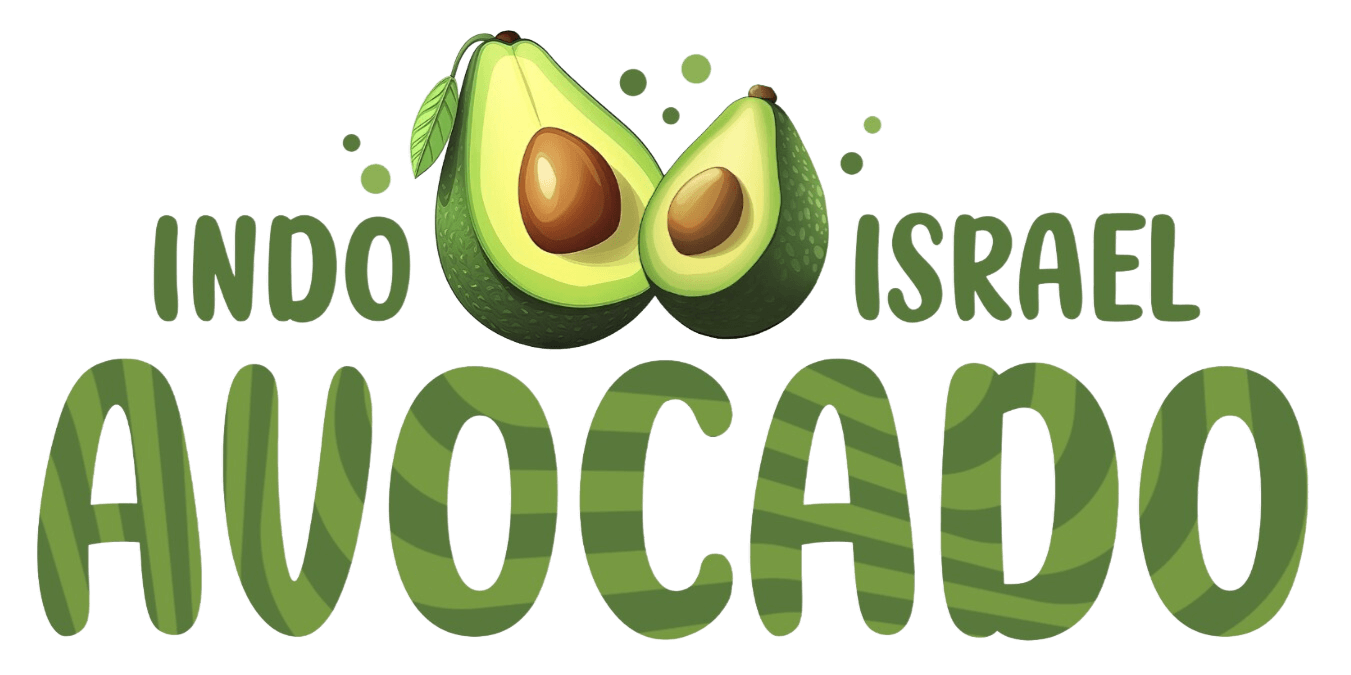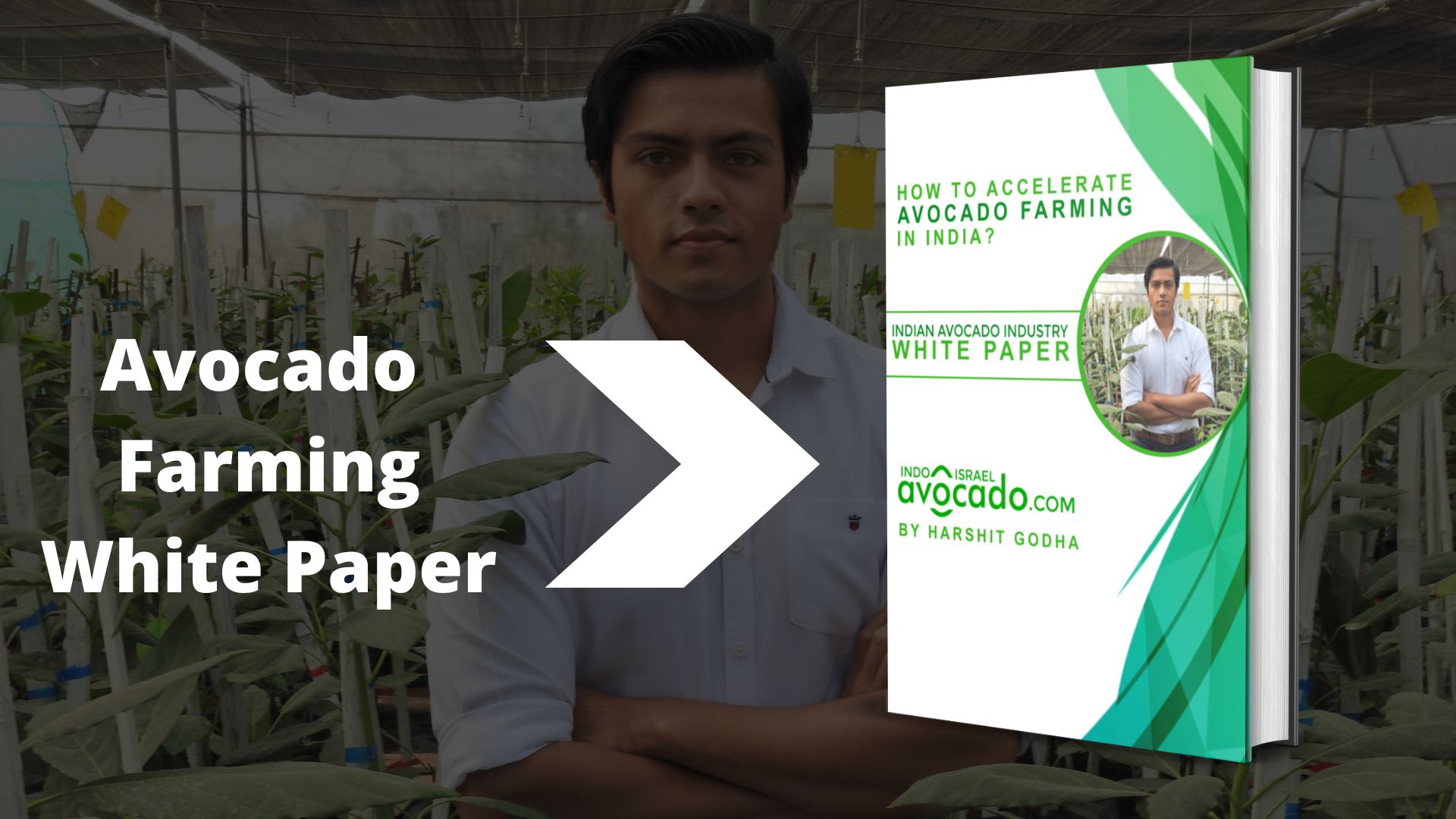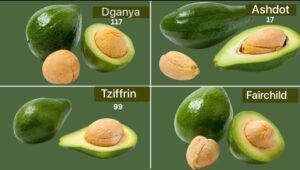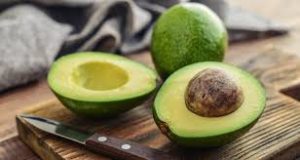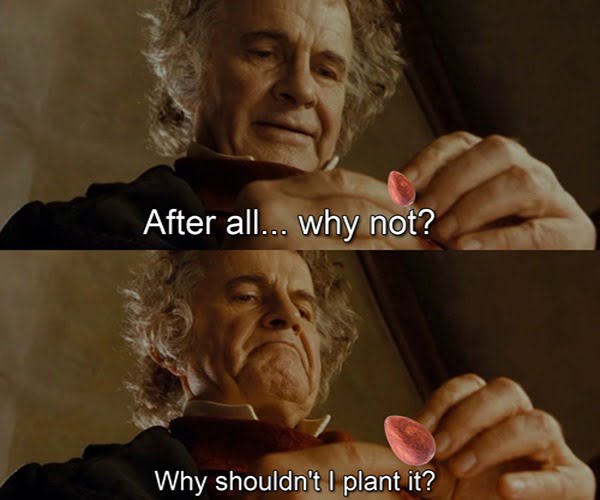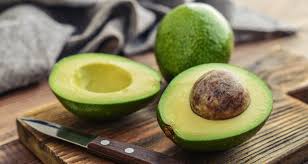Executive Summary
Traditional crops have a saturated market in India with excess production. Government needs to look at new crops like avocado which can help farmers command a premium price.
Avocado is a superfood with immense health benefits. It has a higher demand than supply worldwide because its popularity is increasing exponentially on social media. Currently, India does not have commercial avocado planting material like avocado rootstock seeds.
Indian government should introduce policy changes such as –
- Amending the Plant Quarantine Order (2003) through the ‘Pest Risk Analysis’ procedure and allowing the import of avocado rootstock seeds,
- Subsidy on saplings to the farmer,
- Subsidy on plastic ponds,
- Focusing on lagging regions like the North Eastern states,
- Initiating talks with Indo Israel Centers of Excellence for Agriculture in India.
These policy changes can transform India into a leading avocado producing country.
Price of Imported Hass Avocado is 1500 ₹ per kg in the Indian retail market. If we produce avocado plants in India and promote avocado farming through favourable policies, it would drastically bring down the price of the fruit and make it available to the general public and not just the elites. We can also export our produce to the international markets and process it into guacamole and avocado oil.
In this white paper, I have elaborated the points highlighted above. Please share this with someone who holds an influential position in the Ministry of Agriculture and Farmer’s Welfare in India and can execute these policy reforms. It will help our farmers to benefit from the worldwide economic boom of the avocado industry.
I can be contacted at +91 9109107400 or indoisraelavocado@gmail.com for further discussion.
Contents
Executive Summary
- Why a change is needed?
- Why Avocados?
2.1 Health benefits of Avocado fruit
2.2 More demand than supply worldwide
2.2.1 More demand than supply worldwide
2.2.2 Avocado production in the world
2.3 Current state of avocado farming in India - Industry Scope
3.1 Domestic market for fresh avocados
3.2 International market for commercial Indian avocados
3.3 Avocado processing
3.3.1 Guacamole (avocado puree)
3.3.2 Edible Oil
3.3.3 Baby food
3.4 Avocado oil-based skin care
3.5 Avocado Merchandise
3.6 Agri Tourism - Policy changes needed to support avocado production in India
4.1 Adding avocado ‘seeds’ to the Plant Quarantine Order (2003)
4.2 Subsidy on saplings to the farmer
4.3 Plastic Pond Subsidy
4.4 North East avocado Cluster development for sustainable avocado farming
4.4.1 Reforms needed to develop avocado farming clusters in the North East
4.5 International Bridges – Indo Israel Centers of Excellence - Author – Harshit Godha – Indo Israel Avocado
1. Why a change is needed?
Indian agriculture industry has come a long way over the last 2 decades. The agriculture industry is well acquainted with the drip irrigation technology, green house cultivation etc. Even the supply chain and cold logistics sector has improved and is now complementing our farmers in a way that makes it possible for them to sell their produce in foreign markets.
Yet we still have problems with our farmers who are struggling for prices, staging protests over MSPs. This is because most traditional crops have become saturated markets. We need to look at new frontiers to safeguard their interests and focus on crops which will command a premium in the market.
Avocado is one such crop which has the potential to change the fortunes of Indian farmers.
2. Why avocados?
2.1 Health benefits of avocado fruit
Avocados are a superfood which are packed with vitamins, minerals and essential fatty acids (Marengo and Ware, 2021). It helps in improving cardiovascular health, improves brain function, regulates hormones and prevents oral, breast and throat cancers (Dreher and Davenport, 2013). Avocado is also a rich source of folate, which supports health of the unborn baby during pregnancy[3].
Currently, avocados are extremely expensive, with imported Hass avocado from Mexico costing up to 1500₹ per Kg, making it affordable only to the upper class of the metro cities.
2.2 More demand than supply worldwide
2.2.1 Avocado consumption in the world
Avocado consumption has been on a rise in the Western countries. Per capita consumption of avocados has doubled between 2010 and 2020, and has touched 3.85 kgs per person per year in the USA (Rabobank Research, 2021). As for the European countries, avocado consumption reached 6.5 Lakh tonnes in 2018 and the Total Accessible Market is valued at 11 Lakh tonnes in the coming years (Searle, 2019).
2.2.3 Avocado production in the world
Due to such a sharp increase in demand, supply is falling behind. Traditionally, South American countries were the dominant suppliers, however Israel, South Africa, Australia, New Zealand and United States have heavily invested in avocado farming. They have developed rootstocks and cultivars of avocado suitable for their respective climatic conditions and soils and have become the pioneers of the World avocado industry.
2.3 Current state of Avocado farming in India
Currently, avocado is being cultivated in some coffee estates of Southern India and Sikkim. However, due to lack of knowledge, research and limited expertise of the government and Indian agriculture institutes, the kind of the varieties being grown are not commercial. They do not have same market appeal as their imported competitors. As depicted in Figure 1, current Indian avocados don’t have same appearance, taste, shelf life and oil content as the ones found abroad. Thus, making Indian avocados less appealing with no export potential.

If our farmers grow commercial varieties of avocados like Hass, Lamb Hass, Pinkerton, Shepard, Ettinger, GEM and Maluma grafted on commercial avocado rootstocks like Degania 117, Ashdot 17, Zutano, Velvick and Dusa, then it will put our avocados at the forefront of the world avocado Industry. For that, government needs to allow the import of avocado rootstock seeds from different countries into India. Section 4.1 deep dives into how importing avocado seeds can fast track avocado production in India.
3. Industry Scope
3.1 Domestic market for fresh avocados
In India, 2 types of avocados are available in the market. The locally grown Indian avocados which are sold at 500-600₹ per Kg and the imported Hass avocados from New Zealand, Mexico and Chile sold for 1500₹ per Kg in the retail market.
The demand for avocados is rising in India because it is a staple for ketogenic and vegan diets. Increase in awareness for a healthy lifestyle among the millennials is driving its demand. Actors, sportsmen and women, doctors and nutritionists are referring to add avocados to the diets of older people as well. In fact, our agriculture minister Hon Shri Narendra Singh Tomar is aware of the rising demand for avocados and other exotic fruits and has instructed state governments to increase the land under cultivation for exotic fruits to 8951 hectares (Times of India, 2021). However, ministry’s ambition to grow avocados will remain a challenge if we don’t have high quality planting material for avocados available within India.

Once we start producing our own high-quality avocados in India, it will be available and affordable to the common public in India and not just to the elites.
3.2 International market for commercial Indian avocado
Until we can produce commercial avocado varieties, we won’t be able to compete in the international market. India has ample advantages to begin this transformation, including cheaper land, lower labour costs, ample rain water and favourable climatic conditions.
If we get the commercial rootstock seeds from Israel, Australia, South Africa etc then our produce would have the potential for export to Western Europe and the Middle East.
Countries like Kenya (Xinhua, 2021; Sukanan, 2020), Uganda and Nigeria (dw.com) have already realized the immense potential in farming this green gold and Kenya is now among the top producer of the crop.
3.3 Avocado Processing
3.3.1 Guacamole (Avocado puree)
While the fresh avocados are favoured by the health-conscious millennials, when processed into a dip or a puree it has a high demand in hotels, restaurants as well as the common public as it can be consumed like a compliment to snacks. It is increasingly popular in south America and the USA. The dip has a Mexican name, and is known as Guacamole. In Super Bowl Sunday, its consumption was 48,000 Tonnes during the game in the USA (Komorek, 2021). If 48,000 tonnes can be consumed in a few hours in the USA, if marketed correctly, imagine the potential for Guacamole in India.

When introduced to the Indian consumers, we can add our own flavours to it and come up with Indian flavours of Guacamole.
3.3.2 Edible Oil
Avocado oil has mono-unsaturated fatty acid which is good for heart health. The worldwide market for avocado oil is valued at half a billion USD with a projected CAGR of 6.9% over the next 5 years in the western countries. As the fruit gains more popularity in India, the CAGR of avocado oil industry in India is going to be much higher.

The oil percentage and quality of avocado oil obtained from commercial avocados remains unmatched when compared to avocados currently available in India. To truly reap its benefits, India needs to improve its avocado fruit quality.
3.3.3 Baby food
Avocado is rich in micro nutrients, fiber and essential fats (Dreher and Davenport, 2013), making it a perfect food for babies. It can help tackle the problem of malnutrition in India.

3.4 Avocado oil based skin care
The beta carotene, protein, lecithin, fatty acids, and vitamins A, D and E found in avocado oil help moisturise and protect the skin from UV rays (Healthline.com) and also increases collagen metabolism (Werman, Mokady, Nimni, & Neeman, 1991).
Skin care brands in the West like Olay, Yardley, Bath & Body works, St Ives etc have already seized the opportunity and have been selling avocado based skin and personal care products since the last 2 decades.

Once we start producing avocados here in India, Indian brands can tap into the same opportunity and come up with their own avocado based skin care products.
3.5 Avocado Merchandise
Avocado as a fruit has become a sensation on social media. Celebrities abroad create content around avocado and get millions of views and engagement for such content. Figure 7 shows examples of such online promotion of the fruit. With so much content generated around it, the fruit practically sells itself.

This celebrity status of the fruit allows for its merchandising. This can help the small businesses in the manufacturing and retail sector.

3.6 Agri Tourism
Sula winery is a perfect example to understand how avocado farms can attract tourists. I have personally visited Sula vineyards and took a tour of their winery and vineyards. Similar idea can be executed by avocado farmers if developed properly and marketed to the target audience of health-conscious consumers.

4. Policy changes needed to support Avocado production in India
4.1 Adding avocado seeds to the Plant Quarantine Order (2003)
The list of agriculture items allowed for import are specified in the Plant Quarantine Order 2003. In that list, avocado ‘plants’ can be imported from Israel, South Africa, Indonesia, Malaysia, Mauritius, Mexico, New Zealand, Philippines, Sri Lanka, Thailand, USA, Australia, Chile, Columbia, Guatemala, Spain and the Caribbean.
However, there is no provision for avocado ‘seeds’ in the Plant Quarantine Order 2003, because of which seeds of the avocado plant cannot be imported to India. It is important to note that avocado plants come with the seed intact with the root system and the shoot (figure 10), but because the ‘seed’ provision is absent from the list of items, a farmer can only import grown plants and cannot import just avocado rootstock seeds from any country. We need high quality rootstock seeds from abroad in bulk for commercial avocado farming because there is not a single commercial avocado rootstock in India.

As per my knowledge, the Plant Protection Department of Government of Israel has requested market access to export avocado seeds to India through an official process called ‘Pest Risk Analysis’. ‘Pest Risk Analysis’ is a regular process through which Plant Quarantine Order 2003 is regularly amended. Currently, the file is under observation at the Plant Quarantine Department, Faridabad.
As per my knowledge, the Plant Protection Department of Government of Israel has requested market access to export avocado seeds to India through an official process called ‘Pest Risk Analysis’. ‘Pest Risk Analysis’ is a regular process through which Plant Quarantine Order 2003 is regularly amended. Currently, the file is under observation at the Plant Quarantine Department, Faridabad.
I, and a few entrepreneurs, are importing live avocado ‘plants’ from different countries like Israel, South Africa and Australia. However, the cost and mortality of importing live avocado plants via air cargo is extremely high, whereas importing seeds is much more economical. The cost of importing seeds is 6-8 times less than the cost of importing live avocado plants.
If the PQ Order 2003 is amended and avocado ‘seeds’ are added to it, then we can produce our own avocado plants in India in large quantities and export avocado fruit to different countries as well.

4.2 Subsidy on Saplings to the farmer
Exotic crops like Kiwi, Grapes and Passion fruit have been subsidized by the Ministry of Agriculture under the Mission for Integrated Development of Horticulture (MIDH) with up to Rs 4 lakh per hectare. However, there is no such scheme for avocados.
If the government introduces such scheme, then it can accelerate avocado farming in India.
4.3 Plastic Pond subsidy
Avocado is a water intensive crop. While the North East India and the coffee estates of South India might have ample water through rain fall for avocados, in other states like Madhya Pradesh, Maharashtra and Gujrat, government should encourage water conservation through rain water harvesting in plastic ponds and drip irrigation.
Currently the plastic pond subsidy is only offered on the plastic pond liner and not on the excavation work. Therefore, subsidy norms should be changed in a way where the subsidy by the government is offered on the entire work for the construction of plastic pond.

4.4 North East avocado cluster development for sustainable avocado farming
States like Arunachal Pradesh, Nagaland, Sikkim etc. have the ideal climatic conditions for avocados. Surprisingly, the Seven Sisters also have the most awareness about avocado fruit as suggested by google trends key word search for avocado. It will be easier to persuade farmers in the North East to grow avocados as we will be leveraging their existing location specific assets (Barzottoa, Corradini, Fai, Laboryd, & Tomlinson, 2020) like
- Ideal climatic conditions therefore less dependency on ground water,
- Cheaper land and labour costs,
- High awareness about avocados (Figure 13),
- And Small hold farmers therefore decentralized production.
Avocado farming can be extremely beneficial for the rural and small hold farmers in the North east and would enable more sustainable development from socio-economic and environmental point of view.

4.4.1 Reforms needed to develop avocado farming clusters in the North East
- Government should introduce a policy to instruct the agriculture universities like Assam Agriculture University in Jorhat, Central Agriculture University in Imphal and Gangtok etc. to execute small scale pilot projects to showcase commercial avocado farming.
- Government should also provide additional subsidy on avocado saplings to the farmers there because purchasing power of the farmers in that region would be significantly less than the farmers from other states.
4.5 International Bridges – Indo Israel Centers of Excellence
MASHAV is Israel’s agency for international development in agriculture. They have set up Centers of Excellence throughout India for educating farmers, mainly focusing on crops like Pomegranates, Mangoes, Vegetables etc. However, avocados, which is Israel’s most profitable crop, hasn’t been introduced to Indian farmers via the Indo Israel Centers of Excellence.
Mashav has been working on avocados in other African countries like Ethiopia to develop the avocado industry there. The Ministry of Agriculture in India should initiate talks with MASHAV to develop the avocado industry here in India by educating the farmers through the Indo Israel Centers of Excellence.

5. Author – Harshit Godha – Indo Israel Avocado
My name is Harshit Godha. I am the founder of www.indoisraelavocado.com and the author of this report. I am pioneering commercial avocado cultivation in India using Israeli technology. I have lived in Israel for a month to learn about avocado farming, and then imported live avocado plants to Bhopal. My project has been featured on numerous fresh produce industry publications online. I publish regular content on my YouTube channel to educate farmers about commercial avocado farming.

My aim for writing this white paper was to make the reader understand why Indian farmers need avocado farming. If you know someone in your network who holds an influential position in the Ministry of Agriculture and Farmer’s Welfare in India and can execute the policy reforms I have suggested, please share this report with them and ask them to read it. The policy reforms I have asked for, are very minor changes. If executed, these policy suggestions can be monumental in shaping the avocado industry in India.
Thank you for reading.
Kind regards,
Harshit Godha
Indo Israel Avocado
